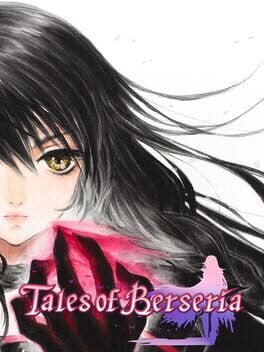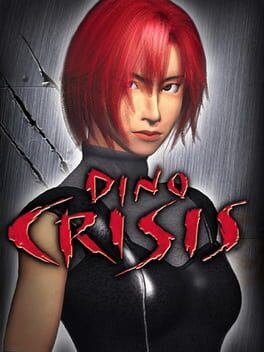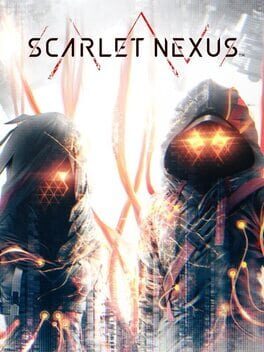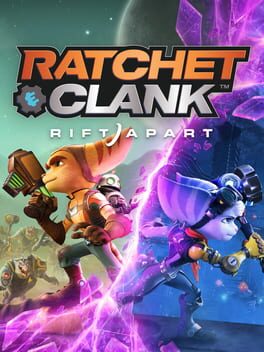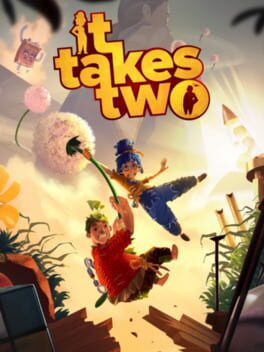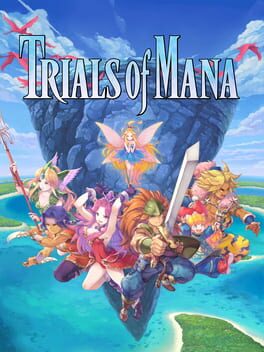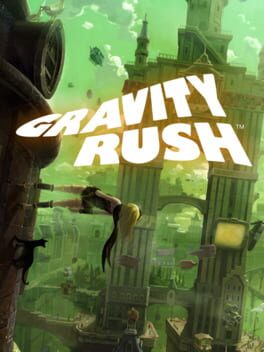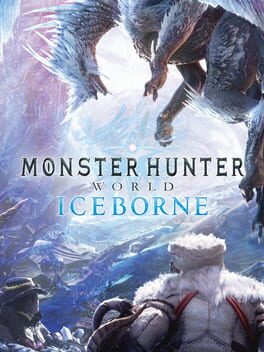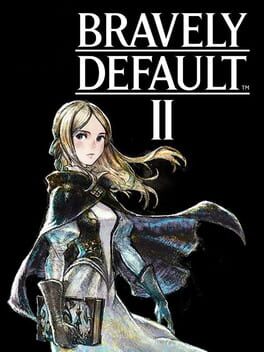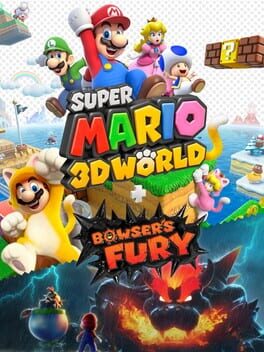ade
2021
2016
This review contains spoilers
From its opening scene, Tales of Berseria carves out a unique identity within the Tales franchise. Ask almost anyone and they'll tell you that Berseria is the "dark one." Provided that you let go of your reservations, you'll feel intimately connected with the protagonist, Velvet, with relative ease--something that very few games manage to accomplish. Actually, Berseria has the best cast of any of the Tales games I've played so far (those being Symphonia, Abyss, Vesperia, and now this). Laphicet, in particular, is the most endearing "child character" in any JRPG I've played. So why didn't I love this game?
From the jump, Berseria introduces a lot of mechanics that lead almost nowhere. Combat is fast and frenetic. However, combat focuses on proccing stuns through elemental artes, as doing so will raise your soul gauge and allow you to extend your combo in turn. Because of that combat basis and Velvet's "Therionization" mechanic, the game is an absolute cakewalk, to the point that it becomes mind-numbingly boring by the second half. There is almost no incentive to experiment in combat, other than to flex, as you're always going to be working towards the same result--proccing stuns. On top of that, Velvet is unkillable when she's Therionized, and she will almost always be Therionized if you're halfway engaged in combat. The game has a random loot system in the vein of Diablo, ensuring that your character progression feels inconsequential. Finally, your reward for defeating powerful bosses--"code red" encounters and Class IV authorization zones--are incremental upgrades called ventites. I lost track of how many times I unlocked these items, and the item description was always along the lines of, "This ventite has a 40% chance to trigger a random skill when playing on Hard Mode." In the midst of all of this, you are asked to explore countless unimaginative and, frankly, unattractive environments, with the only real incentive for doing so coming from thousands of meaningless collectibles. From a gameplay perspective, Berseria piles unpleasant system after unpleasant system upon the player.
I've already praised Berseria's cast, but what about the story? The game manages several character moments that are both effective and well-earned: Shigure's last stand against Rokurou, Laphicet releasing Velvet from the Earthpulse, Eleanor's defection from the Abbey, and Arthur's death are moments that immediately come to mind. Unfortunately, Berseria's narrative often buckles over its own jargon. By the end of the game, your mind will be spinning with all sorts of in-universe terms--Malakhim, Daemons, Therions, Reaper's Curse, Scarlet Night, The Opening, The Advent, Empyreans, armatization, malevolence, Earthpulses, Innominat, blah blah blah blah. The game's incessant compulson to establish and discuss these concepts often clashes with what the game does right--Velvet's struggle against Artorius and her satisfying transformation from soulless, bloodthirsty Therion to brave, compassionate human.
Ultimately, Tales of Berseria is a decent game with numerous shortcomings. Still, I absolutely love these characters. I just wish I loved their game too.
From the jump, Berseria introduces a lot of mechanics that lead almost nowhere. Combat is fast and frenetic. However, combat focuses on proccing stuns through elemental artes, as doing so will raise your soul gauge and allow you to extend your combo in turn. Because of that combat basis and Velvet's "Therionization" mechanic, the game is an absolute cakewalk, to the point that it becomes mind-numbingly boring by the second half. There is almost no incentive to experiment in combat, other than to flex, as you're always going to be working towards the same result--proccing stuns. On top of that, Velvet is unkillable when she's Therionized, and she will almost always be Therionized if you're halfway engaged in combat. The game has a random loot system in the vein of Diablo, ensuring that your character progression feels inconsequential. Finally, your reward for defeating powerful bosses--"code red" encounters and Class IV authorization zones--are incremental upgrades called ventites. I lost track of how many times I unlocked these items, and the item description was always along the lines of, "This ventite has a 40% chance to trigger a random skill when playing on Hard Mode." In the midst of all of this, you are asked to explore countless unimaginative and, frankly, unattractive environments, with the only real incentive for doing so coming from thousands of meaningless collectibles. From a gameplay perspective, Berseria piles unpleasant system after unpleasant system upon the player.
I've already praised Berseria's cast, but what about the story? The game manages several character moments that are both effective and well-earned: Shigure's last stand against Rokurou, Laphicet releasing Velvet from the Earthpulse, Eleanor's defection from the Abbey, and Arthur's death are moments that immediately come to mind. Unfortunately, Berseria's narrative often buckles over its own jargon. By the end of the game, your mind will be spinning with all sorts of in-universe terms--Malakhim, Daemons, Therions, Reaper's Curse, Scarlet Night, The Opening, The Advent, Empyreans, armatization, malevolence, Earthpulses, Innominat, blah blah blah blah. The game's incessant compulson to establish and discuss these concepts often clashes with what the game does right--Velvet's struggle against Artorius and her satisfying transformation from soulless, bloodthirsty Therion to brave, compassionate human.
Ultimately, Tales of Berseria is a decent game with numerous shortcomings. Still, I absolutely love these characters. I just wish I loved their game too.
2015
1999
2021
This review contains spoilers
I was pretty excited for this in the lead-up to launch for a few reasons, but I didn't expect to have to force myself to finish this.
On one hand, the combat is very fun and flashy, particularly in the last third of the game, and I had a decent fun when experimenting with different SAS combos. Also, it fully commits to its insane narrative in a way that feels surprisingly confident for a brand new IP.
On the other hand, I'm too tired to write out my complaints in a way that flows naturally, so I'm going to number them.
(1) The narrative completely buckles under the weight of its laughable writing. This game really wants you to like these characters, but you're never given any real reason to. There's a half-baked relationship system, but it consists of cycling through menus to figure out what gifts you haven't given out yet, and the rewards for putting up with this are pretty few and far between.
(2) Whoever made this can't design an interesting world (or a functioning map system) to save their life. This game comes from the "orange Astral Chain" school of design.
(3) The game completely ruins the appeal of its most highly-touted feature--the inclusion of two protagonists with parallel storylines--by the time you get to the last third of the game. After telling you about everything that happens in their story route, the other protagonist's entire platoon joins your party at once, thereby ruining any appeal of a second playthrough to, for example, experiment with the other platoon's SAS powers (unless you really want to play as the other protagonist, for some reason).
(4) Progression is extremely vague and unfulfilling. You earn "brain points" when you level up, but you can only upgrade the protagonist's skills. This is a fine idea on its own, but 90% of the skills are passive abilities that I mostly never noticed in combat. There are a couple of cool skills, such as aerial psychokinesis attacks and concurrent SAS activation, but these are unlocked far too late in the skill tree to make any real impact. There are only about 4 different weapons and 2 costumes to unlock for each character, and there is almost no reason to optimize your party setup because it will not change their strategy or survivability at all.
(5) That's because this game's idea of ramping up its difficulty is "more enemies" instead of different enemies or unique combat scenarios. Like I said before, this game's combat is pretty fun! However, there's almost no incentive to experiment with any of it, because you'll be fighting the same 5 or 6 enemies for the entire game.
(6) The sidequests are very mundane and routine. That usually doesn't bother me that much, but the sidequest rewards are always either healing jellies or bond gifts, both of which can be bought from the shop. You are never rewarded with experience points, additional plug-in slots, or anything useful. There's also no way to track your sidequest objective--you can pin the quest title to the side of the screen, but you have to open a separate menu to view the objective.
(7) Please stop sending text messages to my brain.
Scarlet Nexus is, by all accounts, a remarkably shallow and uninteresting game. If you're going to play a JRPG primarily for its combat, just like... buy Ys IX or something
On one hand, the combat is very fun and flashy, particularly in the last third of the game, and I had a decent fun when experimenting with different SAS combos. Also, it fully commits to its insane narrative in a way that feels surprisingly confident for a brand new IP.
On the other hand, I'm too tired to write out my complaints in a way that flows naturally, so I'm going to number them.
(1) The narrative completely buckles under the weight of its laughable writing. This game really wants you to like these characters, but you're never given any real reason to. There's a half-baked relationship system, but it consists of cycling through menus to figure out what gifts you haven't given out yet, and the rewards for putting up with this are pretty few and far between.
(2) Whoever made this can't design an interesting world (or a functioning map system) to save their life. This game comes from the "orange Astral Chain" school of design.
(3) The game completely ruins the appeal of its most highly-touted feature--the inclusion of two protagonists with parallel storylines--by the time you get to the last third of the game. After telling you about everything that happens in their story route, the other protagonist's entire platoon joins your party at once, thereby ruining any appeal of a second playthrough to, for example, experiment with the other platoon's SAS powers (unless you really want to play as the other protagonist, for some reason).
(4) Progression is extremely vague and unfulfilling. You earn "brain points" when you level up, but you can only upgrade the protagonist's skills. This is a fine idea on its own, but 90% of the skills are passive abilities that I mostly never noticed in combat. There are a couple of cool skills, such as aerial psychokinesis attacks and concurrent SAS activation, but these are unlocked far too late in the skill tree to make any real impact. There are only about 4 different weapons and 2 costumes to unlock for each character, and there is almost no reason to optimize your party setup because it will not change their strategy or survivability at all.
(5) That's because this game's idea of ramping up its difficulty is "more enemies" instead of different enemies or unique combat scenarios. Like I said before, this game's combat is pretty fun! However, there's almost no incentive to experiment with any of it, because you'll be fighting the same 5 or 6 enemies for the entire game.
(6) The sidequests are very mundane and routine. That usually doesn't bother me that much, but the sidequest rewards are always either healing jellies or bond gifts, both of which can be bought from the shop. You are never rewarded with experience points, additional plug-in slots, or anything useful. There's also no way to track your sidequest objective--you can pin the quest title to the side of the screen, but you have to open a separate menu to view the objective.
(7) Please stop sending text messages to my brain.
Scarlet Nexus is, by all accounts, a remarkably shallow and uninteresting game. If you're going to play a JRPG primarily for its combat, just like... buy Ys IX or something
2021
It Takes Two is a nonstop thrill ride that continues to surprise until the very end. The weaker elements (the writing in some places and sparse instances of frustrating level design) don’t detract from the constant joy of playing through this game with a loved one. This is, bar none, one of the best co-op experiences out there.
1994
2020
two things:
(1) announcing a localization of the original trials of mana followed immediately by a remake that perfectly adapts the art style of the original is like, top 5 uncharacterisically cool things square has ever done
(2) turns out ffvii remake is just atb bars slapped over the trials of mana battle system
(1) announcing a localization of the original trials of mana followed immediately by a remake that perfectly adapts the art style of the original is like, top 5 uncharacterisically cool things square has ever done
(2) turns out ffvii remake is just atb bars slapped over the trials of mana battle system
2006
This review contains spoilers
It's difficult to summarize my feelings on this one. I played Earthbound for the first time last year, and it quickly shot itself into my top 5 favorite games of all time. I feel that Earthbound contains a few of the most memorable sequences in games—Moonside, Saturn Valley, Magicant, and the final battle against Giygas, to name a few. Playing Earthbound with the Player's Guide was as close to an otherworldly experience as I've ever had with a video game. As a result, I was always going to go into Mother 3 with unbelievable expectations.
In a lot of ways, Mother 3 meets those expectations. First off, it's extraordinarily well-written, with Itoi's trademark sense of humor (tinged with a measure of dread) shining throughout. It has a very engaging battle system which, when paired with the "rhythm battle" mechanic, makes for some of the most fun I've had playing a JRPG. Finally, the game moves with a sense of urgency—something I appreciated after the occasionally plodding pace of Earthbound. I could go on and on and on about what Mother 3 does well.
All of that said, Mother 3 isn't perfect. Most of the time, I felt that the game involved a few great moments wrapped around a series of McGuffins (more on this later, don't kill me). For example, the game continually asks you to recover the Egg of Light or pull the Needles, but you're given no indication as to why any of this matters until Leder's explanation in the climax, whether through worldbuilding or dialogue. While a lot of the lore is interesting, this "lore dump" approach to storytelling almost always feels lazy and unearned. A large portion of this game involves trudging ahead through unimaginative environments because the game tells you to, but, in my opinion, not because you care.
However, nearly all of my complaints melted away by the time I got to New Pork City. The game is batting on all cylinders there. Rather than giving you a true final boss, Mother 3 uses the final "battle" against Claus as a narrative device that I assume most players, myself included, will never forget. Like I said before, I don't think that Mother 3 is a perfect game, and I still prefer Earthbound in most regards. That said, in light of everything that it does so extraordinarily well, Mother 3 is a game that everyone should play.
In a lot of ways, Mother 3 meets those expectations. First off, it's extraordinarily well-written, with Itoi's trademark sense of humor (tinged with a measure of dread) shining throughout. It has a very engaging battle system which, when paired with the "rhythm battle" mechanic, makes for some of the most fun I've had playing a JRPG. Finally, the game moves with a sense of urgency—something I appreciated after the occasionally plodding pace of Earthbound. I could go on and on and on about what Mother 3 does well.
All of that said, Mother 3 isn't perfect. Most of the time, I felt that the game involved a few great moments wrapped around a series of McGuffins (more on this later, don't kill me). For example, the game continually asks you to recover the Egg of Light or pull the Needles, but you're given no indication as to why any of this matters until Leder's explanation in the climax, whether through worldbuilding or dialogue. While a lot of the lore is interesting, this "lore dump" approach to storytelling almost always feels lazy and unearned. A large portion of this game involves trudging ahead through unimaginative environments because the game tells you to, but, in my opinion, not because you care.
However, nearly all of my complaints melted away by the time I got to New Pork City. The game is batting on all cylinders there. Rather than giving you a true final boss, Mother 3 uses the final "battle" against Claus as a narrative device that I assume most players, myself included, will never forget. Like I said before, I don't think that Mother 3 is a perfect game, and I still prefer Earthbound in most regards. That said, in light of everything that it does so extraordinarily well, Mother 3 is a game that everyone should play.
2012
2021

